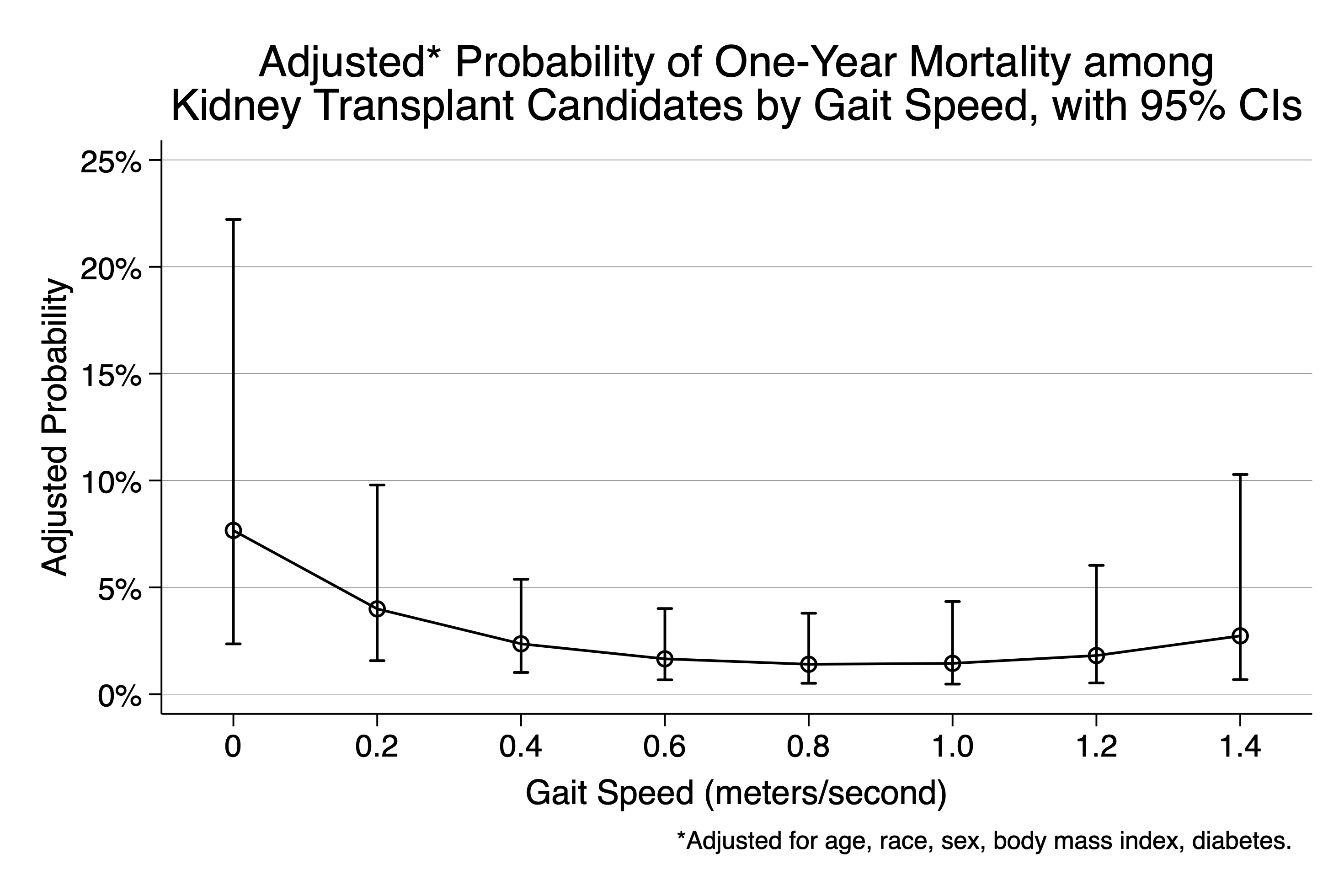Gait Speed Predicts Kidney Transplant Candidate Mortality
1Medicine, Drexel University College of Medicine, Philadelphia, PA, 2Surgery, Drexel University College of Medicine, Philadelphia, PA, 3Medicine, University of Pennsylvania School of Medicine, Philadelphia, PA
Meeting: 2019 American Transplant Congress
Abstract number: D186
Keywords: Mortality, Waiting lists
Session Information
Session Name: Poster Session D: Non-Organ Specific: Disparities to Outcome and Access to Healthcare
Session Type: Poster Session
Date: Tuesday, June 4, 2019
Session Time: 6:00pm-7:00pm
 Presentation Time: 6:00pm-7:00pm
Presentation Time: 6:00pm-7:00pm
Location: Hall C & D
*Purpose: Waiting list mortality is increasingly scrutinized as a metric of transplant center quality. It is unknown if gait speed assessments may augment physician evaluations of kidney transplant (KT) candidate mortality risk.
*Methods: We enrolled adult KT candidates (age>18 years) at a single center between January 1, 2016 and May 31, 2017 in a prospective cohort study. The transplant nephrologist who evaluated each participant rated their likelihood of one-year mortality using a 10-point Likert scale. Participant gait speed (meters/second [m/s]) was then assessed with an eight-foot walking test. One-year mortality outcomes were ascertained by review of medical records and phone calls to study participants. We fit unadjusted and multivariable adjusted logistic regression models to assess the association of gait speed with one-year mortality, and examined the discriminatory accuracy of gait speed and physician prediction by comparing C-statistics.
*Results: Among 300 KT candidates, 8 (3%) died within one year of evaluation. Body mass index (BMI) was lower among KT candidates that died (median BMI 24.0 vs 29.0 kilograms/m2, p=0.02). In an unadjusted logistic regression model, there was a non-linear association between lower gait speed and higher probability of one-year mortality. This association persisted after adjustment for age, race, sex, diabetes, and BMI [figure]. Compared to a model with standardized physician risk assessment alone, discriminatory accuracy for one-year mortality was higher in a model that incorporated both physician assessment and gait speed (C-Statistic 0.50 vs 0.67, p=0.07).
*Conclusions: The findings of this prospective, single center study suggest that gait speed assessments may help transplant physicians to identify kidney transplant candidates who are most likely to die.
To cite this abstract in AMA style:
Harhay MN, Ranganna K, Mizrahi LBLevin, Xiao G, Malat G, Guy S, Reich D, Reese PP. Gait Speed Predicts Kidney Transplant Candidate Mortality [abstract]. Am J Transplant. 2019; 19 (suppl 3). https://atcmeetingabstracts.com/abstract/gait-speed-predicts-kidney-transplant-candidate-mortality/. Accessed February 22, 2026.« Back to 2019 American Transplant Congress

